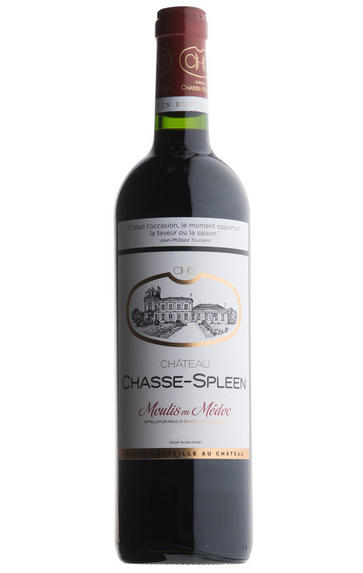
2011 Château Chasse-Spleen, Moulis-en-Médoc, Bordeaux
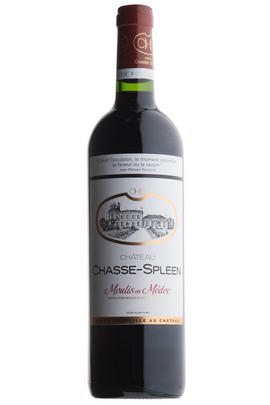
Critics reviews
Robert M. Parker, Jr. - 30/04/2014
Robert Parker - Wine Advocate - April 2012
About this WINE
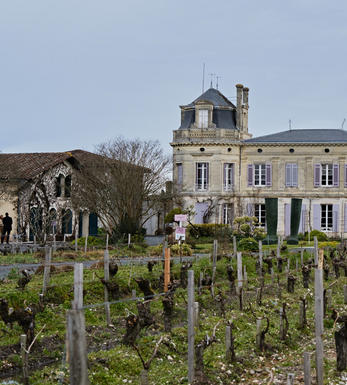
Chateau Chasse-Spleen
Château Chasse-Spleen is the leading Moulis estate along with Château Poujeaux. Although it is classified only as a Cru Bourgeois, it regularly outperforms many of the Médoc's more renowned classed growths. There are two theories behind the château's rather unusual name: firstly, that, when Lord Byron visited the estate in 1821, he remarked `Quel remède pour chasser le spleen`. Secondly, that it is named after Baudelaire's poem, Spleen.
Chasse-Spleen's wines were always noteworthy, though the quality improved dramatically with its acquisition by the Taillan Group, which also owns Château Haut-Bages-Libéral, in 1976. It was run by Bernadette Villars until she and her husband were killed in an accident while hiking in the Pyrénées in 1992. The property is now run by her daughter Claire.
Chasse-Spleen's wine is a blend of 65% Cabernet Sauvignon, 30% Merlot and 5% Petit Verdot. It is matured in oak barriques (40% new) for 18 months and is bottled unfiltered.
Chasse-Spleen wines are typically deeply-coloured and full-bodied on the palate, displaying oodles of ripe, black fruit, minerals and sometimes hints of chocolate.
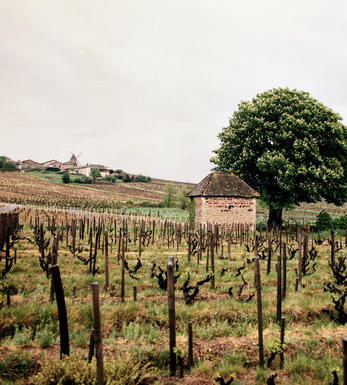
Moulis
This is the smallest of the six Médoc communes but boasts a wide variety of soils and terroirs. Moulis is one of the two communal appellations located on the Atlantic side of the Médoc. It is positioned directly south of Listrac and even though it adjoins Margaux - the Médoc appellation with the highest number of Cru Classé châteaux - there are none here.
In the context of the Médoc, Moulis is hilly country, studded with a diversity of gravels, limestone and clay. These are sturdy wines, but the best are capable of considerable longevity and are often seductively perfumed. Generally they have more power than Margaux wines, albeit with less finesse and elegance.
Recommended Châteaux: Ch. Chasse-Spleen, Ch. Poujeaux, Ch. Maucaillou.
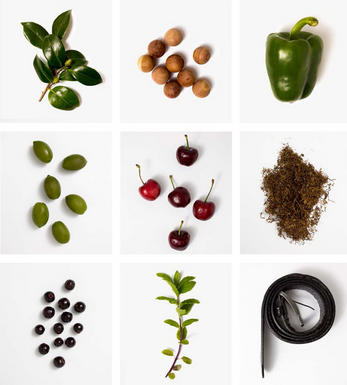
Cabernet Sauvignon Blend
Cabernet Sauvignon lends itself particularly well in blends with Merlot. This is actually the archetypal Bordeaux blend, though in different proportions in the sub-regions and sometimes topped up with Cabernet Franc, Malbec, and Petit Verdot.
In the Médoc and Graves the percentage of Cabernet Sauvignon in the blend can range from 95% (Mouton-Rothschild) to as low as 40%. It is particularly suited to the dry, warm, free- draining, gravel-rich soils and is responsible for the redolent cassis characteristics as well as the depth of colour, tannic structure and pronounced acidity of Médoc wines. However 100% Cabernet Sauvignon wines can be slightly hollow-tasting in the middle palate and Merlot with its generous, fleshy fruit flavours acts as a perfect foil by filling in this cavity.
In St-Emilion and Pomerol, the blends are Merlot dominated as Cabernet Sauvignon can struggle to ripen there - when it is included, it adds structure and body to the wine. Sassicaia is the most famous Bordeaux blend in Italy and has spawned many imitations, whereby the blend is now firmly established in the New World and particularly in California and Australia.


Buying options
Add to wishlist
Description
Ch. Chasse Spleen is cool, reserved and classic Claret wine, with a terrific centre core of ripe Cabernet fruit. This has been on a winning streak now for quite a few years and the 2011 is a lovely addition.
Simon Staples, Berrys’ Fine Wine Director
wine at a glance
Delivery and quality guarantee